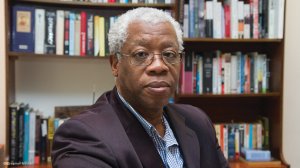In electoral terms, South Africa is a new country. The South Africa of the day before the local government elections, in relation to the South Africa of the day after the elections, is a country that is foreign to the African National Congress (ANC). As former treasurer-general of the ANC Mathews Phosa put it: “The clever blacks have spoken.”
In the South Africa of the day before the elections, the ANC had become accustomed to benefiting from a lack of substantive uncertainty in our electoral politics. ‘Lack of substantive uncertainty’ refers to the fact that, until 2004, the outcome of South African elections had a high level of predictability as a feature of what was an uncompetitive party system.
The lack of substantive uncertainty coincided with a growing gap between the procedural and substantive aspects of our democracy. The former refers to the fact that, since the advent of democracy in 1994, all South Africans have been enjoying democratic rights and freedoms which, prior to 2004, were the preserve of the white minority. In this respect, the postapartheid State has done well, but when it comes to a substantive change in the lives of the majority, the achievements have lagged behind the procedural.
One of the most important elements of the procedural aspects of our democracy is the right to vote, a right that, in the local government elections, ANC supporters used to send a strong message that they want change in the substantive aspects of our democracy. In other words, this year’s local government elections introduced a higher level of substantive uncertainty at the expense of the ANC. Voters did this for many reasons, including the hope of significant change in the substantive dimensions of our democracy – that is, the ability of democracy to deliver more than just a set of rights, freedoms and democratic institutions. Democracy must deliver a substantive change in the lives of citizens, especially those who were victims of apartheid and colonialism. Our democracy must deliver an economy which, unlike the current economic setup, is not driven by a colonial logic that excludes the majority. Consciously or otherwise, this is what voters hope will be delivered through the ballot box.
Another thing this year’s elections have done is to show that the political identity of black voters is not fixed. It is complex and evolving. In its analysis of the election results, the ANC must take this point seriously. During the struggle, the ANC referred to ‘the people’ as the motive force of the National Democratic Revolution. This is a claim the ruling party continues to make to this day. What the ANC must remember is the fact that ‘the people’ did not become a ‘motive force’ of the revolution by proclamation. This force of revolution came into being through mobilisation and, therefore, its active participation in the struggle. The ANC must remember that the people chose to be part of the struggle impelled by the oppressive and exploitative nature of the apartheid State.
But the people’s participation in the struggle was also a function of free political will, which, in this election, many expressed to the detriment of the ANC by either staying at home or voting for other parties.
One of the major lessons the ANC must take out of these elections is the fact that, in the same way that the people were mobilised by the liberation movement, they can be mobilised by the subjective weaknesses of the ANC and its govern- ment into seeking alternatives to the failures of the ANC. This means that there is a possibility that they may be mobilised into voting for parties that are not committed to a substantive change in the lives of those who were oppressed.
In other words, the outcome of this year’s elections is a response to the fact that the main source of counterrevolution today is the ANC itself. Therefore, the outcome of this election constitutes the triumph of the weaknesses and failures of the ANC over the imperative for a substantive change in the lives of South African citizens. In the main, this has found expression in the leadership, moral and strategic deficits that the ANC and its leaders have come to embody. It has found expression in corruption, factionalism and the growing gap between the ideals of the liberation movement and what the ANC, as a ruling party, has become. It has found expression in how members of the dominant faction have become more loyal to the party leader than they are to the interests of the country and the party.
Under these circumstances, it is highly unlikely that the tension between the need for President Jacob Zuma to survive and the imperative for change will be resolved. The two are irreconcilable. Therefore, the 2019 elections will deliver a more devastating blow to the ANC.
Edited by: Martin Zhuwakinyu
Creamer Media Senior Deputy Editor
EMAIL THIS ARTICLE SAVE THIS ARTICLE
To subscribe email subscriptions@creamermedia.co.za or click here
To advertise email advertising@creamermedia.co.za or click here












